This story comes to us from Esther Ro, our Creative Content Producer in Haiti. Esther has spent the last three months rolling around the Central Plateau with her trusty camera meeting the teachers, students, and communities that make up our network of schools.
The first thing Michelet Houpette does when he wakes up each morning is review the lesson plan for the day. On the agenda today is practicing algebraic inequalities, introducing new French vocabulary, writing exercises in Creole, and a hygiene and health review. After refreshing his notes, Michelet quickly showers and eats a plate of spaghetti - a Haitian breakfast favorite - before making the journey to Ecole Bon Samaritain de Sarazin.
Click here to see a map of the places Michelete has lived, worked and studied.
The school, located in the rural village of Guindette, is roughly seven miles from Michelet’s uncle’s home in Lascahobas, a sizable market town in the Central Plateau. Michelet sleeps here most nights instead of at his childhood home in Loncy, a neighboring village that is 20 minutes from the main road. By 7:10 a.m., Michelet is out the door and walking towards the heart of the Lascahobas where he catches a ride on a tap-tap, the name of the colorful pickup trucks and buses that serve as public transportation in Haiti. The ride costs 50 gourde, or just under one US dollar. Some days, if the fare is hard to procure, Michelet finds a way to get to school, whether it’s by borrowing a relative’s motorcycle or walking part of the distance. Principal Thomas Benjamin remembers one time Michelet pedaled to school on a bicycle, “smiling, his forehead shining with perspiration.”
““Michelet is one of the best, one of the most devoted teachers I know,” says Principal Benjamin. ”
“Michelet is one of the best and one of the most devoted teachers I know,” says Principal Benjamin. “He has a gift of encouraging others and is extremely selfless, bringing new ideas and suggestions to better our school.”
Michelet’s fourth grade class consists of 86 students, so roll call is a lengthy ordeal. When every student is accounted for, he marks the tally in the top lefthand corner of the blackboard for Principal Thomas’s official record. With a firm but friendly voice, Michelet begins the day’s lessons. Bright, wide eyes follow his movements up and down and across the room. Hands wave excitedly in the air and a chorus of enthusiastic voices respond to questions posed to the class. One by one, students come forth to solve equations or conjugate verbs on the blackboard and correct each other’s mistakes. Before introducing the next subject, Michelet gets everyone’s blood pumping by leading them in a hyperactive sequence of head bobbing, arm waving and leg shaking that evokes smiles and giggles from even the most reserved students.
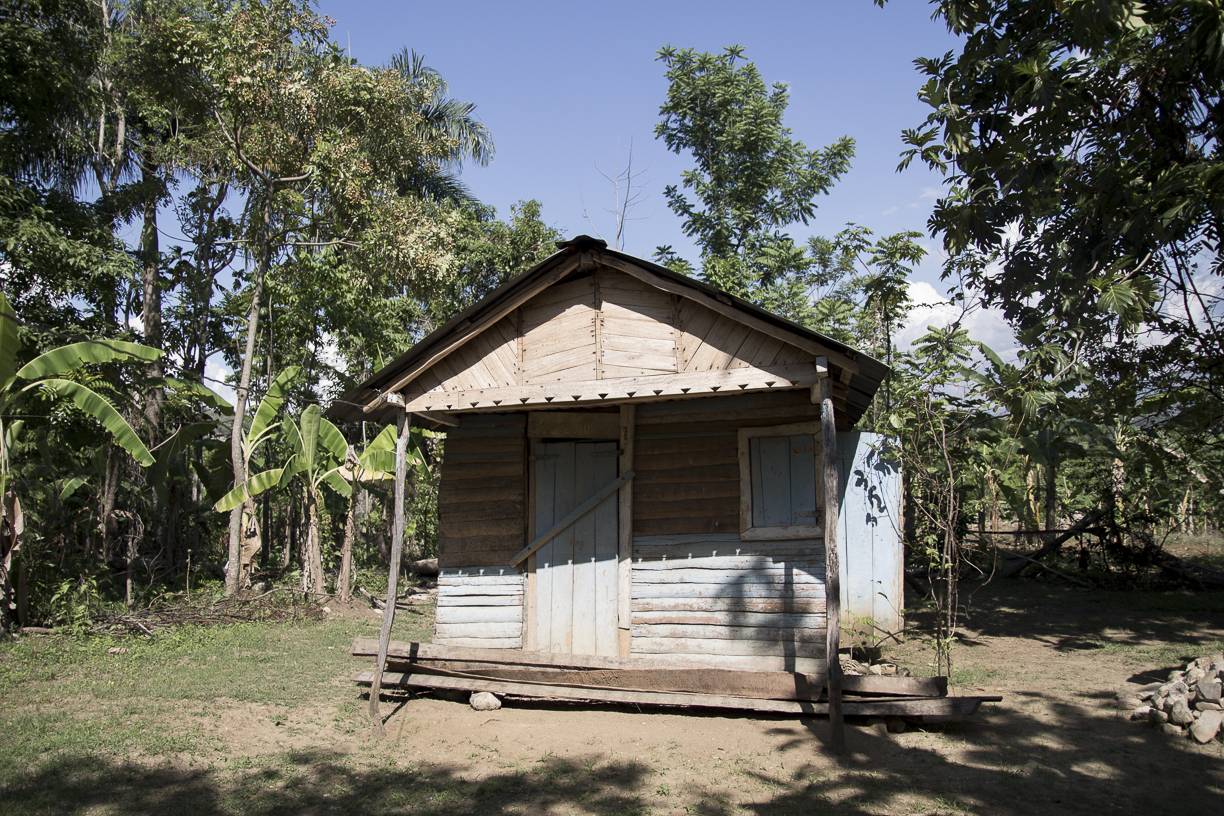

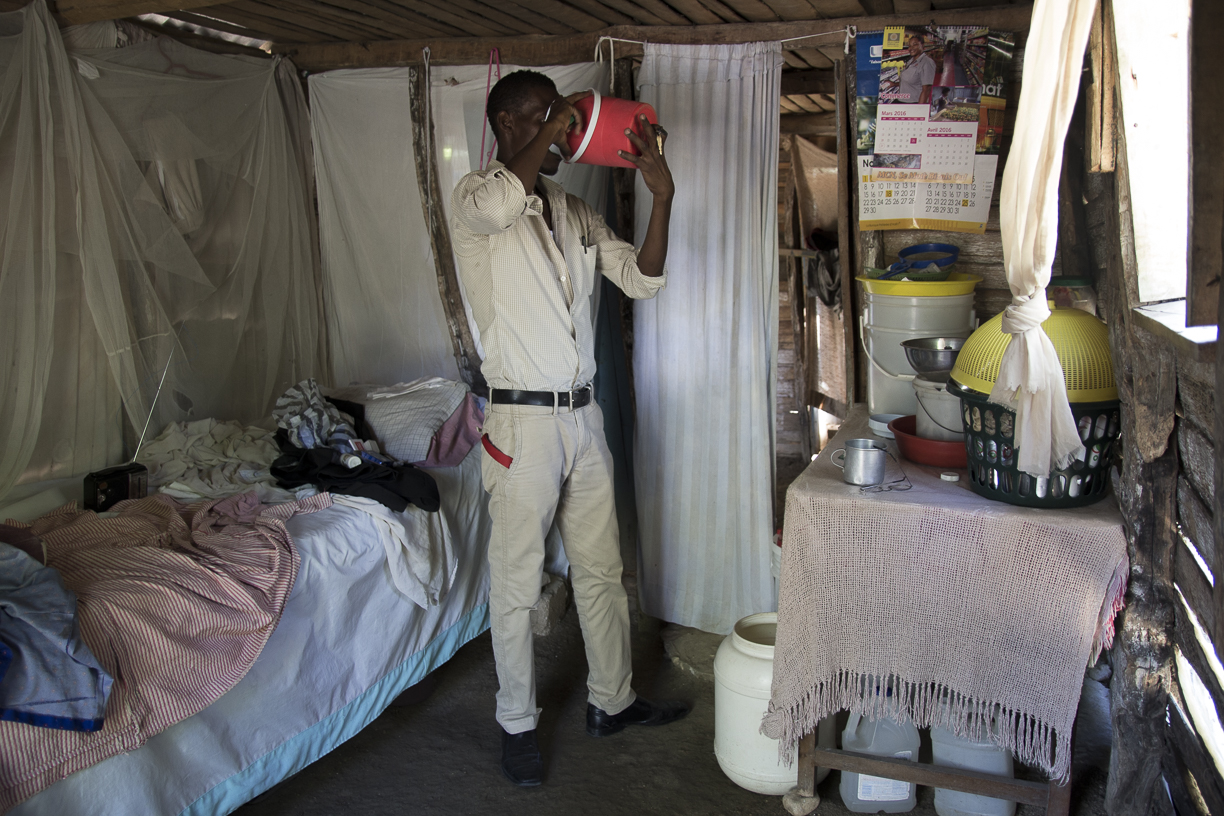
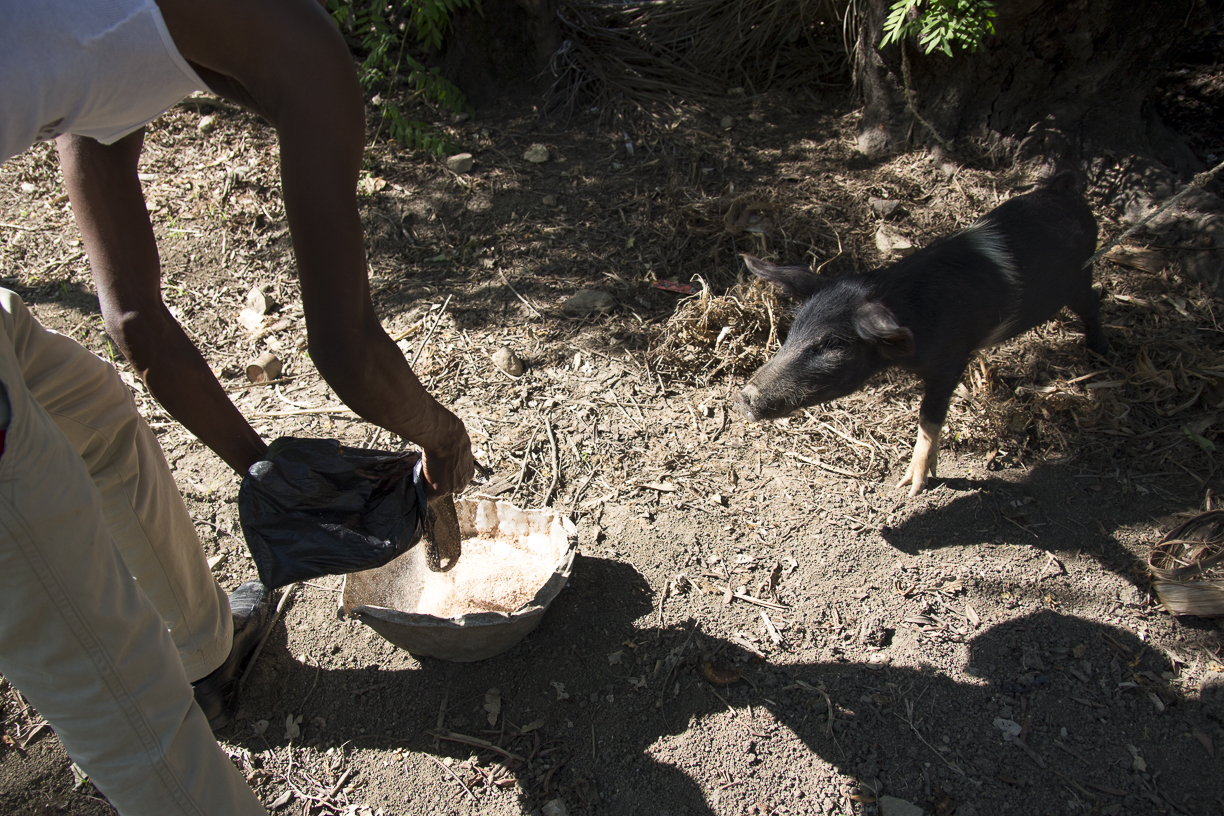
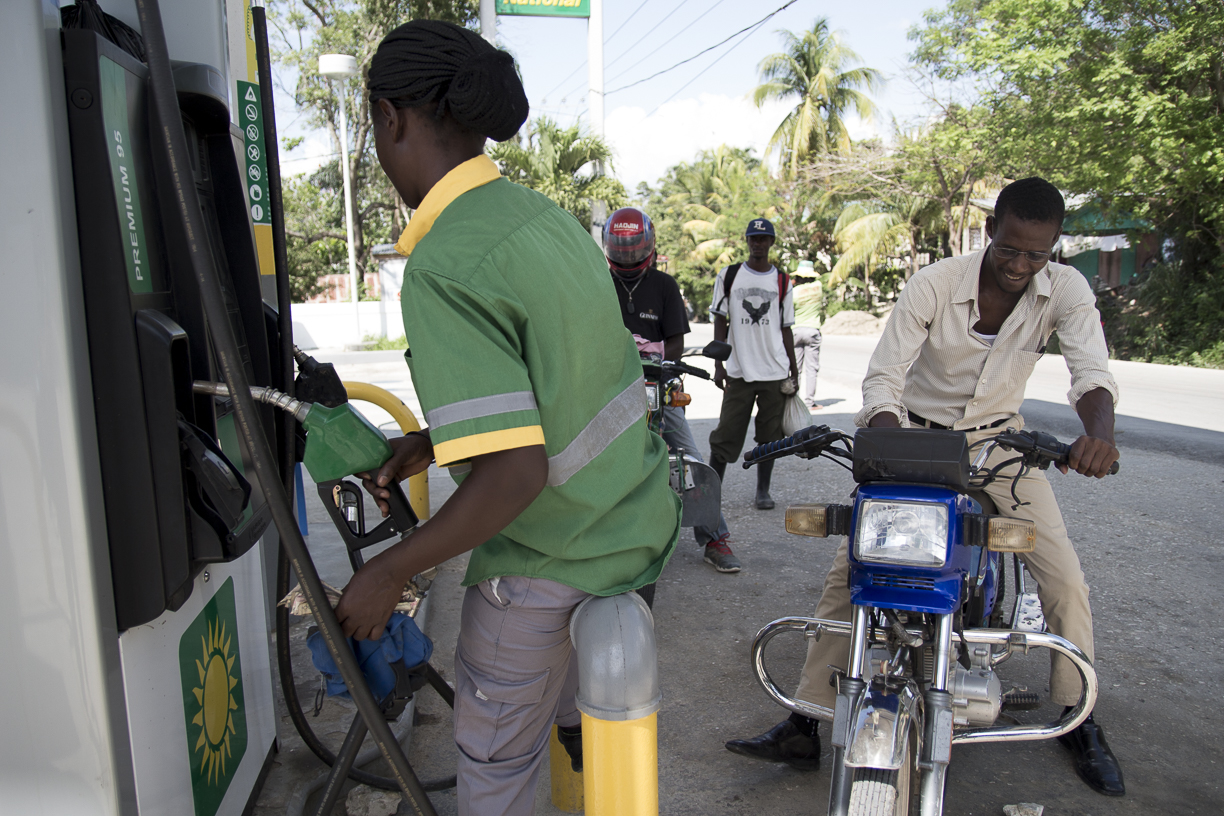


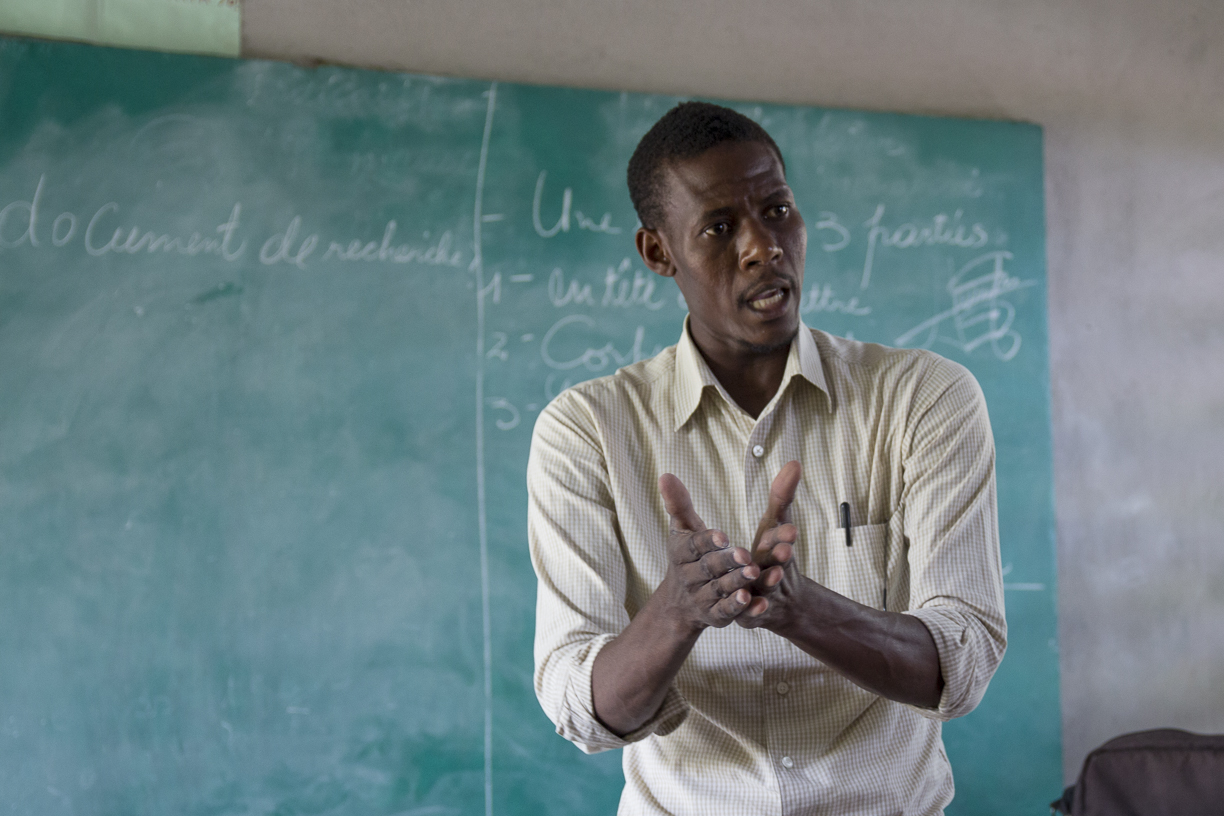
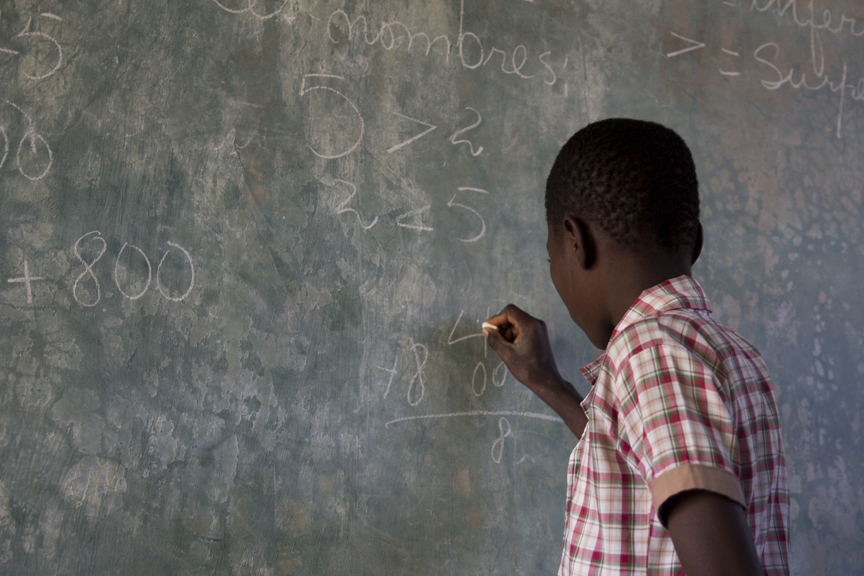
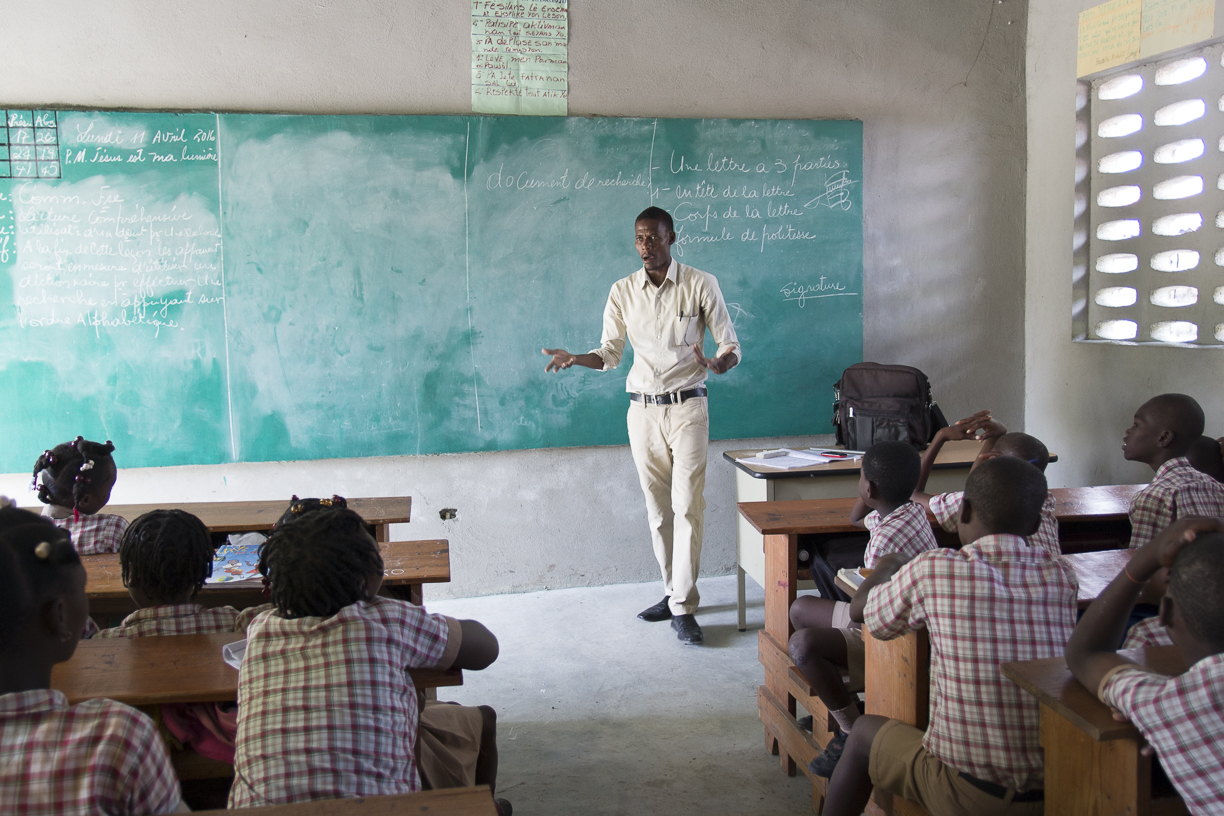



The dismissal bell rings at one p.m. sharp, but Michelet’s work isn’t over yet. Three days a week, he gives additional math, French and Creole lessons to an advanced group of pre-teens in Lascahobas. Given his commitment to education, it’s hard to believe that Michelet fell into this profession almost by accident.
“When I was young, I never thought I’d be a teacher,” Michelet said. “I was nervous because I didn’t think it would be easy to change careers, but I have learned to be flexible.”
After completing secondary school, Michelet enrolled at Université Polyvalente D’Haiti in Port- au-Prince as an accounting student. Due to financial troubles, however, he was unable to complete his degree and returned to his home in the countryside, where he picked up a teaching assistant position as a way to earn some money.
Two years later, Michelet was offered a formal job at Sarazin. In order to become a more effective teacher, he completed a training program with the Digicel Foundation and earned a certificate in education last year. Michelet is also a member in the first cohort of Anseye Pou Ayiti, Teach for All’s Haitian network, through which he receives additional support, resources and individualized coaching.
When he’s not teaching, Michelet tends to a modest peanut farm and to his livestock, a young goat and a pig, to supplement his teacher’s salary and take care of his mother. Before dinner, he’ll play a round of basketball with friends or nap. Occasionally during the weekends, Michelet gathers his leadership committee comprised of seven students to brainstorm, organize and execute community service projects.
““Education is critical in this moment,” Michelet says. “Right now, Haiti has a weak education system, but together, we can change that.””
Michelet also spends a great amount of time expanding his own knowledge. He is currently a law student at a public college in Gonaive and spends half of his weeknights poring over case studies and legal texts. (“I had an exam last week. I’m waiting for the results, but I feel good,” he shares.) One evening is devoted to theology, and the remaining days are spent studying pedagogy as he hopes to eventually be able to train future teachers.
“Education is critical in this moment,” Michelet says. “Right now, Haiti has a weak education system, but together, we can change that."
Thanks to our donors, teachers in the Summits network like Michelet receive innovative training, ongoing professional development, and competitive wages.


